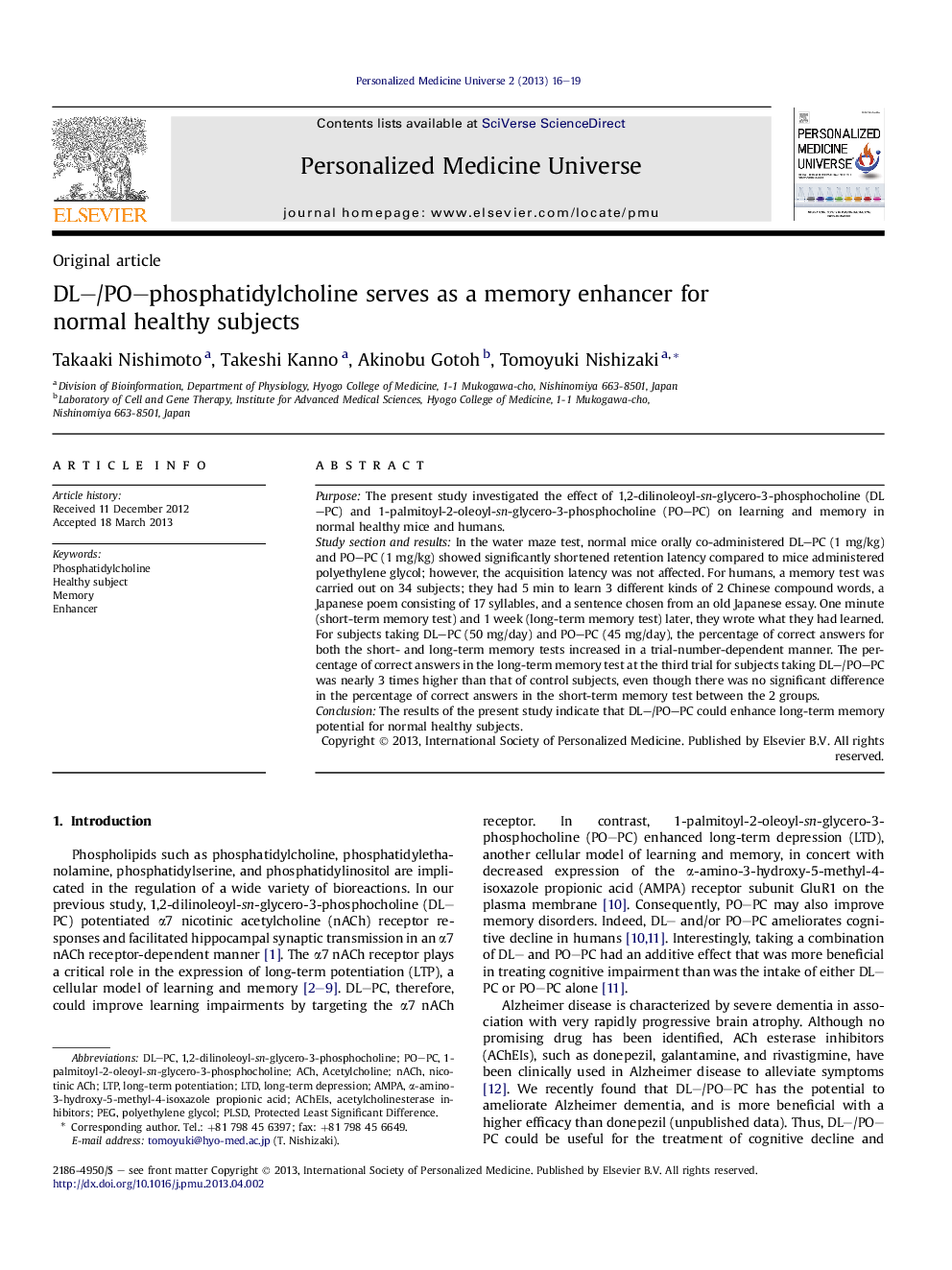| Article ID | Journal | Published Year | Pages | File Type |
|---|---|---|---|---|
| 3382635 | Personalized Medicine Universe | 2013 | 4 Pages |
PurposeThe present study investigated the effect of 1,2-dilinoleoyl-sn-glycero-3-phosphocholine (DL–PC) and 1-palmitoyl-2-oleoyl-sn-glycero-3-phosphocholine (PO–PC) on learning and memory in normal healthy mice and humans.Study section and resultsIn the water maze test, normal mice orally co-administered DL–PC (1 mg/kg) and PO–PC (1 mg/kg) showed significantly shortened retention latency compared to mice administered polyethylene glycol; however, the acquisition latency was not affected. For humans, a memory test was carried out on 34 subjects; they had 5 min to learn 3 different kinds of 2 Chinese compound words, a Japanese poem consisting of 17 syllables, and a sentence chosen from an old Japanese essay. One minute (short-term memory test) and 1 week (long-term memory test) later, they wrote what they had learned. For subjects taking DL–PC (50 mg/day) and PO–PC (45 mg/day), the percentage of correct answers for both the short- and long-term memory tests increased in a trial-number-dependent manner. The percentage of correct answers in the long-term memory test at the third trial for subjects taking DL–/PO–PC was nearly 3 times higher than that of control subjects, even though there was no significant difference in the percentage of correct answers in the short-term memory test between the 2 groups.ConclusionThe results of the present study indicate that DL–/PO–PC could enhance long-term memory potential for normal healthy subjects.
